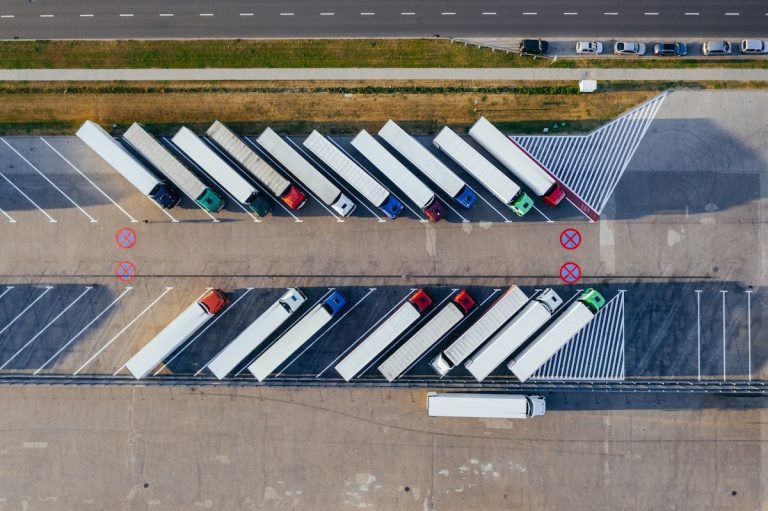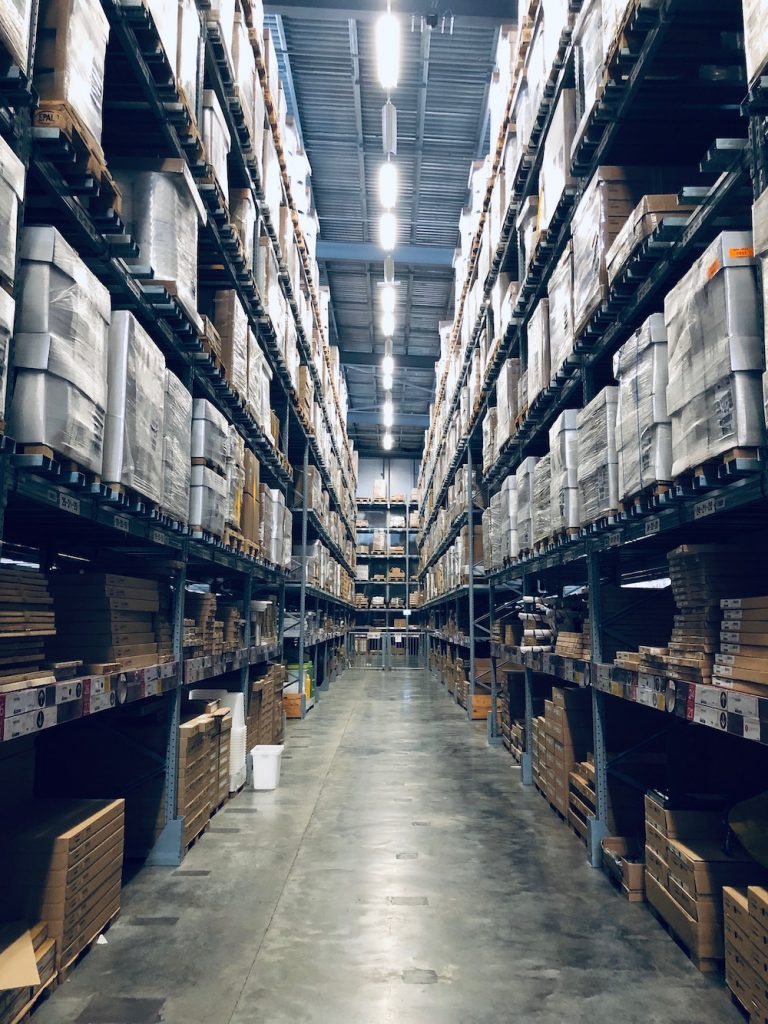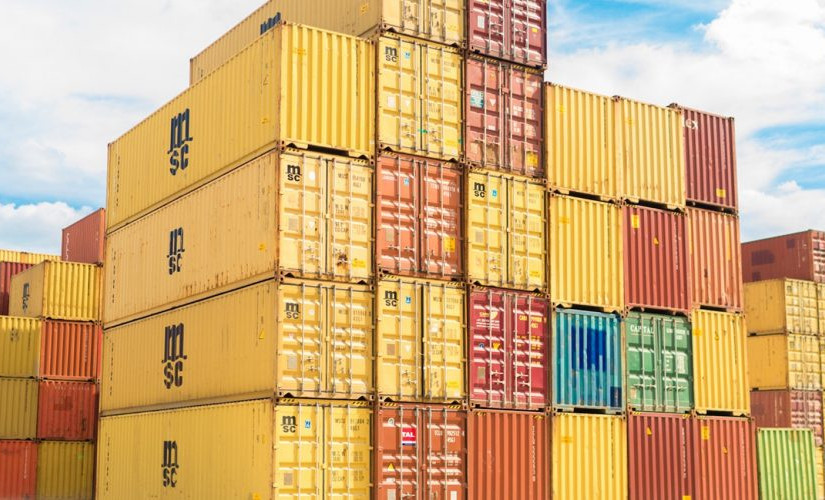Although logistics is the backbone of domestic and international trade, the sector has faced various challenges in Indonesia, such as poor infrastructure, and the lack of reliable IT and communication networks.
According to Mordor Intelligence, logistics costs vary between 25% and 30% of the GDP in Indonesia, as compared to developed economies, where it is below 5%. This means that delivering goods from one city to another in Indonesia can be challenging and expensive.
As the e-commerce industry matures, logistics tech is now considered to be the next emerging industry following the expansion of Indonesia’s digital economy. The various challenges in logistics have attracted various investments to tech startups entering the space, with many of them raising significant funding this year.
According to Sebastian Togelang, founding partner of Kejora Ventures, logistics in Southeast Asia and Indonesia is developing at a robust pace. “In Indonesia, logistics is growing at a double-digit percentage year-on-year, for the past few years. The current trend indicates that logistics is expected to continue to flourish in the years to come in terms of investment and market size,” he told KrASIA.
As an investor, Togelang has plenty of faith in this industry. Earlier this year, Barito Teknologi and Kejora InterVest Growth Fund led a USD 50 million investment in logistics startup SiCepat Ekspres.
According to him, logistics is a key enabler of the internet economy, by playing a key role to ensure the movement of goods from merchants to consumers. Furthermore, to a certain extent, it involves payments between parties. Therefore, this sector will enjoy a sizable increase, based on the general development of the economy and internet economy. This makes it attractive to investors.
“When we talk about the whole logistics spectrum, the Southeast Asia market size is about USD 600 billion, depending on which reports you read. But my take would be that, anywhere in the world, logistics is the bloodline of the economy itself. Hence, I would like to see the logistic tech sectors riding on the wave of the region’s thriving economy,” Togelang continued.
Togelang believes that e-commerce is still at its infancy in Southeast Asia and that the sector will continue to expand more than fivefold in the next few years. And with Indonesia being the largest market and economy in the region, logistics in the country holds many opportunities.
This factor has made Togelang and his team in Kejora confident about their investment in SiCepat Ekspres, considered as one of the largest Series A investments in the region. In addition, the startup’s founders have a proven track record in commerce and logistics. Moreover, SiCepat Ekspres has shown promising development, as its revenue has grown more than 15 times since Kejora first invested in its seed round two years ago, according to Togelang.
“Given the strong market growth rate, developing a logistics company is easy. The real challenge, however, is to make it profitable. We, unfortunately, see that some of the other logistics players still have a ‘burning money’ mentality. Therefore, when taking into consideration SiCepat’s rapid rise while maintaining its strong bottom line, we are very confident about investing in the company,” he added.

Striving for efficiency
The entire logistics supply chain process combines various functions, such as transportation, warehousing, packaging, distribution, storage, and so forth. According to a report by PwC titled Shifting Patterns: Future of The Logistics Industry, the lack of a “digital culture” and training are the biggest challenges for conventional transportation and logistics companies.
This allows new entrants such as tech startups to fill the gap and capture new business opportunities. They can digitalize core operational activities to create smart logistics systems.
Several key technologies deployed by logistics startups include radio frequency identification (RFID), GPS, cloud computing, and data analytics. Smart logistics is expected to improve the way companies transport goods, control inventory, find and manage warehouses, replenish stock, and eventually the overall retail experience.
Tiger Fang, co-founder and CEO of Kargo Technologies, realized that there is high demand and opportunity in this sector. Fang is a former Uber executive who launched the US firm’s operations in Indonesia, Malaysia, and Thailand. He decided to leave his old job to build a logistics tech startup in 2018.
“I think the digitalization of trucking and logistics is not a question of if, but when. At the time of the Uber and Grab merger, we were operating at a pretty significant scale, doing millions of trips every week across 40 cities in Indonesia,” Fang told KrASIA. “Uber was in the logistics of moving people, while Kargo is in the logistics of moving freight,” he continued.
Fang said that approximately 75% of trucking companies in Indonesia have fewer than 20 trucks. Therefore Kargo provides them with a digital gateway to be able to find jobs faster, get paid faster, and to expand their businesses.
“Logistics comprises nearly a quarter of Indonesia’s USD 1 trillion GDP but is beset by poor infrastructure and a myriad inefficiencies,” Fang said. He explained that trucks delivering goods from urban production centers often make the return trip empty, drivers for day-to-day trucking gigs are typically sourced through multiple phone calls and WhatsApp groups, contracts are often handwritten, and payments are sometimes made months after the driver finishes the delivery.
Observing these conditions, Fang and the team at Kargo developed a driver app and enterprise dashboard that offer real-time location tracking, job assignments, invoicing, digital proof of delivery, and payments that are integrated seamlessly with all systems.
“Meanwhile, on the shipper’s side, they are able to track their assets in real-time and have access to the biggest trucking network so they can focus on their core business. This beats worrying about how to find a truck and overpaying many brokers,” he continued.
Kargo Technologies simplifies the freight-forwarding supply chain with their services, making them much more efficient and this benefits both shippers and trucking companies.
Besides freight-forwarding, another branch of logistics that is currently being disrupted by digital innovation is warehousing. Earlier this year, Indonesia’s largest e-commerce company Tokopedia launched a fulfillment service called TokoCabang that utilizes a smart warehouse network spread across various regions in Indonesia.
Through TokoCabang, Tokopedia’s sellers can store their products in its network of warehouses. The company also provides assistance that includes handling incoming orders, packaging, and handing the packages over to shipping couriers.
Other players in the warehousing space are micro-warehousing startup Crewdible and cross-border e-commerce fulfillment AllSome. The latter is a Malaysian startup that is currently preparing for entry to Indonesia.
This warehouse management service is usually intended for small and medium enterprises (SMEs) that have expanding businesses and inventory but cannot afford to rent big storage spaces for themselves.
“One of Crewdible’s missions is to support small individual sellers to become enterprises. By handling the most difficult and mundane task of e-commerce businesses, Crewdible aims to free up sellers’ time so that they can focus on developing the business, adding more products, and doing more marketing,” Crewdible CEO Dhana Galindra told KrASIA.
Crewdible also enables unrentable vacant spaces and turns them into businesses, giving equal benefits for both e-commerce sellers and space owners.

Promising business
Finding the right and sustainable model is a big challenge for any business, including logistics tech startups. As the industry has no dominant player, startups need to experiment to discover viable ways of doing business. However, several industry players believe that businesses in this space are promising and that they are able to generate positive cash flow even in a relatively short period.
“There are many ways to monetize. We’ve successfully piloted a subscription model with hundreds of paying customers. When we match shippers with transporters, we are able to create an industry-leading take-up rate, validate the business model, and the associated unit economics. Today, we are focused on building liquidity and the network, so we are investing in our expansion to new enterprise customers and geographies. Traditional brokers in the business charge up to 20% commission for each shipment,” said Fang.
He said that in just six months of operations, Kargo Technologies has already won marquee clients and contracts and is now the largest trucking network in Indonesia. The startup has had positive unit economics from the start and it is already on the pathway to profitability, Fang added.
Rooling Njotosetiadi, co-founder and CEO of newly established freight-forwarding startup Logisly, also shares the same optimism. Logisly’s platform was launched in January 2019, and the company has seen positive cash flow in less than a year. “We are cross margin-positive from transactions because we help shippers and trucking companies become more efficient in delivering goods,” said Njotosetiadi.
“As our system matches empty trucks and shippers, we can offer a better deal for both customers. For example, for a truck already shipping something from Surabaya to Jakarta, rather than coming back empty, the trucking company would prefer to deliver something on their way back for a lower price. We can get margins from that,” she continued.
The business model seems to work. Although a young company, Logisly has already partnered with more than 200 trucking companies and has worked with around 100 shippers from various sectors.
Crewdible has also applied the same strategy. Galindra said that logistics, especially warehousing, does not require a money-burning strategy because they offer niche services to segmented markets.
“Maybe for ride-hailing, users would choose a cheaper platform because ride-hailing operators mainly offer the same service: taking a passenger from point A to point B. However, in warehousing, we offer value and services such as quality assurance, secure storage, speed of response, and more. A business wouldn’t mind paying a little extra as long as the service meets their needs,” he said.
For online sellers, Crewdible charges 3.5% for every invoice or a maximum of IDR 10,000 (US 0.71). This fee is then split—80% for the warehouse owner and the rest for Crewdible, said Galindra. He said that with a clear business model, Crewdible has shown positive developments. The company recently raised USD 1.5 million from Global Founders Capital and aims to hit profitability 13 months from now.
Competition is still wide open
According to Mordor Intelligence, the Indonesian logistics industry does not have a high level of industry concentration. International players are responsible for approximately 30% of the market size while the remaining 70% comprises local players.
The field is still wide open for logistics tech startups as no single player currently dominates this sector.
“If we look at other countries’ development of the market, logistics is not a winner-takes-all kind of situation. We are expecting that there will be two to five notable players in each vertical. Specifically for last-mile delivery, the top five players will continue to compete for the pole position. However, we believe this to be more of a marathon rather than a sprint. Hence, players who are able to crack unit economics and profitability from day one will be more sustainable in the long run,” said Togelang.
As a newcomer in the industry, Njotosetiadi believes that logistics and all of its verticals have a huge market in Indonesia. There is an opportunity for every player and therefore, she is not too worried about the competition.
More investments to come
KrASIA notes that at least eight logistics startups raised fresh investments this year. Bearing in mind that this industry is swelling quickly, it wouldn’t be a surprise to see more investors targeting the logistics space next year.
According to Bhima Yudhistira, a digital economy analyst at the Institute for Development of Economics and Finance (INDEF), logistics is a sector that will blossom and attract investments next year.
”Logistics is very interesting because it has many verticals and we see that many new players offer innovations like smart warehouses outside metro areas. These players also cooperate with e-commerce platforms, which helps them grow fast. Indonesia’s scope for logistics is huge, so I think we will see greater transformation in this field in the near future,” he told KrASIA.
Kejora Ventures’ Togelang said that logistics tech in Southeast Asia has barely scratched the surface. Kejora expects to see far more progress in this sector in the future and the firm is excited to actively shape its development.
Here is the list of Indonesian logistics startups that were in the spotlight and received fresh funding in 2019:
Kargo Technologies, USD 7.6 million seed round in March led by Sequoia Capital India
Kargo Technologies is a logistics startup that integrates shippers and logistics providers in a single marketplace, solving inefficiencies and reduce costs.
SiCepat Expres, USD 50 million in Series A funding in April, led by Barito Teknologi and Kejora InterVest Growth Fund
SiCepat Expres offers couriers, warehouses, as well as air and cargo delivery services throughout Indonesia, and caters to tens of thousands of online merchants. It claims to deliver over 200,000 packages every day. The startup currently has 600 outlets throughout the country and aims to have 200 drop points in Greater Jakarta this year.
Triplogic, an undisclosed amount from East Ventures in May
Triplogic handles deliveries in 61 cities across the country. By placing smart lockers in local shops to utilize as drop-off points, parcels can be delivered to their destinations within three hours. Triplogic claimed to handle thousands of deliveries each day and aims to have more than 15,000 drop points by the end of 2019.
Waresix, USD 14.5 million Series A round in July, led by EV Growth, SMDV, and Jungle Ventures
The startup connects shippers and businesses with available warehouses and trucks across Indonesia, providing better transparency, quality of service, and improved income for asset owners. Waresix currently has more than 20,000 trucks and 200 warehouse operators in its network across the country.
Ritase, USD 8.5 million in a Series A investment round in July, led by Golden Gate Ventures
Ritase provides a B2B digital transportation system that matches shippers and transporters, simplifying the logistics supply chain to create a more efficient ground freight process. It has signed up 500 small and medium-sized transportation companies, with more than 7,500 trucks and 7,000 drivers.
Logisly, an undisclosed amount from Convergence Ventures and Genesia Ventures in August
The startup increases trucking utilization and brings more transparency to trucking with technology.
Shipper, USD 5 million in seed funding in September from Y Combinator, Insignia, and Lightspeed
Shipper is a logistics aggregator platform. Shipper works with multiple micro-hubs across the country to enable the first-mile pickups and currently operates ten warehouses to help with e-commerce fulfillment.
Crewdible, USD 1.5 million in pre-Series A funding in October from Global Founders Capital
Crewdible connects e-commerce sellers with warehouse owners for order fulfillment. It turns empty facilities such as houses and offices into micro-warehouses.
–
This article first appeared on KrASIA. It’s republished here as part of our partnership.
